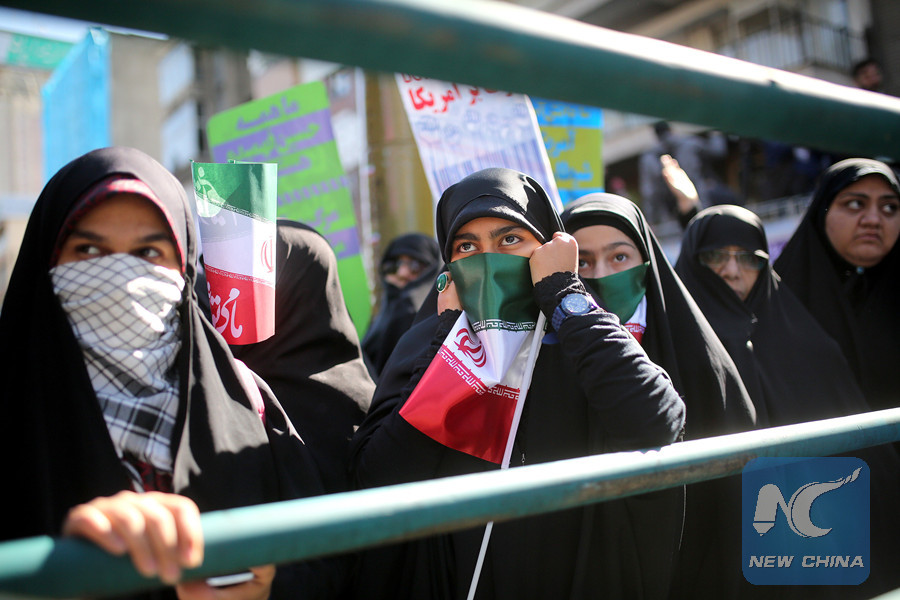
Iranian students take part in a rally marking the 37th anniversary of taking over the U.S. embassy by a group of Iranian students in Tehran, capital of Iran, on Nov. 3, 2016.(Xinhua Photo)
TEHRAN, Nov. 3 (Xinhua) -- A senior commander from the Iran's Islamic Revolution Guards Corps (IRGC) said on Thursday that if the United States fails to adhere to last year's nuclear deal, Iran will reconsider its obligations.
"The Iranian nation is bound to its nuclear commitments, but this commitment is not a one way road," said the lieutenant commander of IRGC, Brig. Gen. Hossein Salami, on the 37th anniversary of the seizure of the U.S. embassy in Tehran.
"If the United States does not meet its obligations, we will return to the point prior to the nuclear agreement," he said. "We will reactivate our centrifuges with even further force."
The nuclear deal was reached between Iran and world powers in July 2015 and was implemented in January 2016.
The deal saw Iran scrap major parts of its nuclear program in return for easing Western and international sanctions.
The United Sates still maintains sanctions on Iran over alleged violations of human rights and support of terrorism, all of which Iran denies.
As for the Islamic republic's development of a missile program and the West's concerns regarding it, Salami said Iran will continue to develop its deterrent power and will improve it.
He hailed the seizure of the U.S. embassy, saying it was an outcome of the Islamic revolution.
Salami decried as "unreal" what he called U.S. claims of combating terrorism, disarmament of weapons of mass destruction, and seeking world peace.
He praised "resistance" movements in Yemen, Palestine, Iraq, Syria, Lebanon, and Bahrain as signs of the expansion of Iran's Islamic revolution regionally and also as an indicator of the "decadent" U.S. influence over the Middle East.
On Wednesday, Iran's Supreme Leader, Ayatollah Ali Khamenei, reiterated his opposition to the restoration of relations with the United States.
The U.S. embassy was stormed by Iranian students on Nov. 4, 1979, with its its personnel held hostage for 444 days.
The U.S. subsequently broke off diplomatic relations with Iran in 1980, and ties have remained severed since then.

